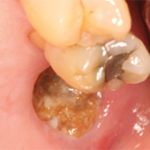NEW YORK (Reuters Health)—The rate of knee replacement surgery among older women with knee osteoarthritis is lower in those who take bisphosphonates than in those who don’t, according to a database study.
Knee osteoarthritis accounts for 97% of all knee replacement surgeries. Trials of bisphosphonates in knee osteoarthritis have yielded conflicting results.
To learn more, Dr. Tuhina Neogi and colleagues from Boston University School of Medicine, in Massachusetts, used data from The Health Improvement Network in the UK to assess the relationship between bisphosphonate use and knee replacement surgery in 2,006 propensity score-matched pairs of older women (mean age, 76) with knee osteoarthritis. Mean follow-up was about 3 years.
The findings were published online October 7 in Annals of the Rheumatic Diseases.
In all, 138 biphosphonate initiators and 170 non-initiators had knee replacement surgery, yielding a significantly lower incidence rate among the initiators (22.0 vs. 29.1 per 1,000 person-years). Even after adjustment for potential confounders, bisphosphonate initiators were 26% less likely to undergo knee replacement surgery.
“Our findings were consistent across several sensitivity analyses that were performed to address potential residual confounding, missing data and selection bias, suggesting that it is unlikely for unaddressed biases to result in bisphosphonate initiation to have a detrimental effect,” the researchers note.
“These findings, taken together with other studies’ findings, support the ongoing evaluation of bone modulation as a potentially promising therapeutic target for knee osteoarthritis,” they conclude.
Dr. Neogi did not respond to a request for comment.
Reference
- Neogi T, Li S, Peloquin C, et al. Effect of bisphosphonates on knee replacement surgery. Annals of Rheumatic Diseases. 2017 Oct 7. [Epub ahead of print]


